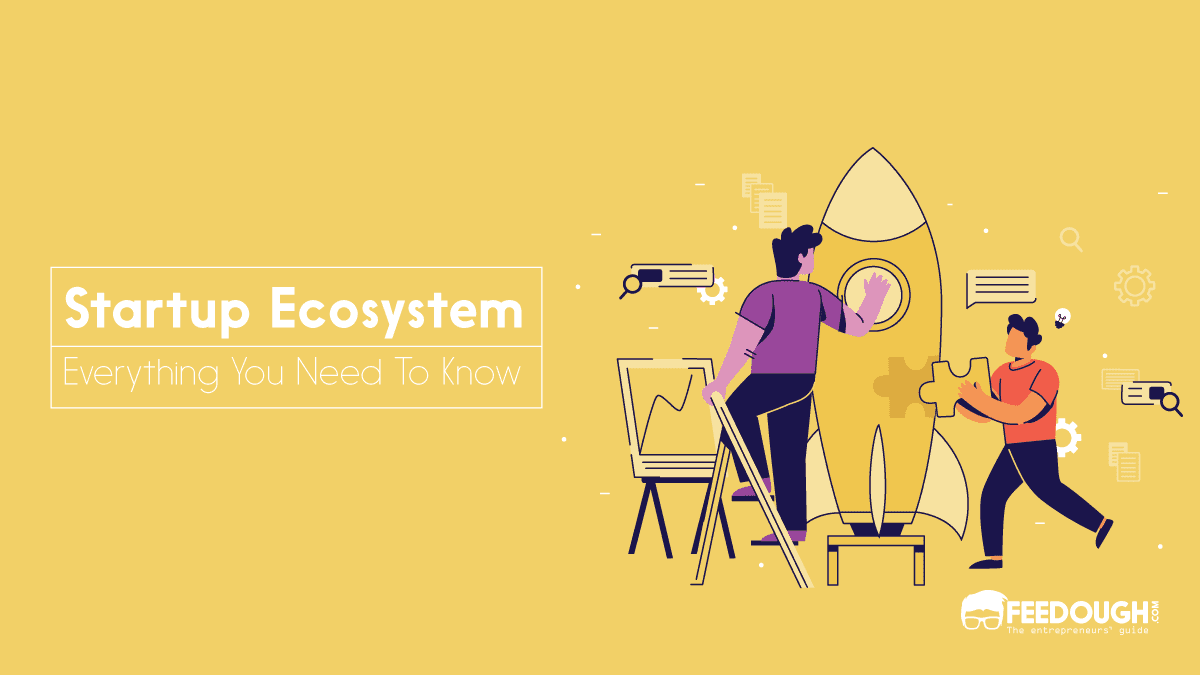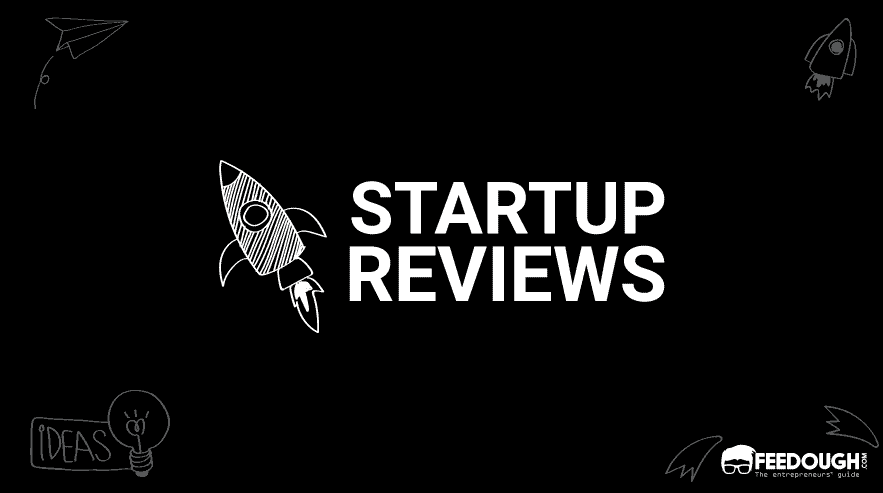Startups are the new buzzwords in the business world. These are the businesses disrupting how people eat, commute, learn and conduct their lives.
The trend has risen to a point where such startups have developed their own ecosystem of interconnected resources that help them grow and succeed.
But before we delve into what constitutes a startup ecosystem and how it works, let’s first answer the question:
What Is A Startup?
A startup is a high-growth fueled business in its early stages, typically characterised by high uncertainty and risk.
This business differentiates itself from traditional firms by its innovation, creativity and agile approach to growth.
The rising trend of startups has given rise to an interdependent system of resources, communities, and organisations that support their growth. This system is known as the startup ecosystem.
What Is Startup Ecosystem?
A startup ecosystem is an interdependent system of communities, organisations, resources, and service providers that support the growth of startups in a particular geographical area.
It is a closed system in which every element is connected and mutually dependent.
The ecosystem is usually divided into three components:
- The Startup: This high-growth fueled business disrupts the industry it operates in. Examples include Uber, Airbnb, and Snapchat.
- The Enablers: These people or organisations make it possible for the ecosystem players to do their job. These include accelerators, incubators, investors, and universities.
- The Ecosystem Partners: These organisations collaborate with and support the startup ecosystem. These include the government, corporations, and service providers.
The ecosystem is composed of various players, each with its own role to play in supporting startups.
Elements Of Startup Ecosystem
Consider the ecosystem as a well-oiled machine that requires several tools to function correctly. Just like a car requires spark plugs, oil, and a gas tank to run, a startup ecosystem requires the following elements.
- Problems and Ideas: A startup ecosystem cannot exist without new problems and ideas. The businesses in the ecosystem must constantly innovate and create new products and services to solve these problems.
- Entrepreneurs: These are the people with the ideas and the drive to make them a reality. They are the lifeblood of a this ecosystem.
- Investors: These are the people who provide the financial backing for a startup to grow. They take on a high risk by investing in these businesses, but they believe in the potential payoff.
- People: A startup cannot exist without people. The people in the ecosystem must be able to provide the talent, skills, and resources that the startup needs to grow. They include startup founders, employees, investors, mentors, and service providers.
- Capital: Capital is the fuel that powers a startup. It allows them to expand, hire new employees, and grow their business.
- Infrastructure: A startup ecosystem requires the infrastructure necessary for businesses to operate. This includes the physical infrastructure (office space, meeting spaces, etc.) and the digital infrastructure (networks, bandwidth, etc.).
- Services: The startup ecosystem must have access to the necessary services to function effectively. These services include legal, accounting, banking, and marketing services.
- Community: This ecosystem requires a community of people who are passionate about startups and are willing to help them succeed. This includes other entrepreneurs, investors, mentors, and service providers.
- Mentorship: Startups are hard, and mentors are the ones guiding new entrepreneurs to find their way. They provide essential guidance and support to the startups by helping them overcome challenges and make better decisions.
- Network: This system requires a strong network of people who can help the startups connect with the right resources. This includes investors, customers, and service providers.
How Does The Startup Ecosystem Work?
The elements of a startup ecosystem are not centrally controlled, but they are interconnected. This means that the players in the ecosystem are connected and mutually dependent on each other.
- The problem arises, and entrepreneurs build a business model to solve them. This business model is a new startup.
- The startup grows and expands by taking help from incubators, accelerators, and accredited investors. It also hires new employees to solve problems better.
- The startup becomes successful and raises more capital from investors to grow even more. This is where other infrastructures and service providers connect with the startup,
- The startup becomes a major player in its industry and disrupts the status quo. It develops communities and a strong network, and the entrepreneurs become mentors for the next generation of startups.
This is how the startup ecosystem works. It is a constantly evolving and interconnected system that is powered by innovation and creativity.
What Makes A Startup Ecosystem Thrive?
Startups ecosystem can be local, national, or international. But what makes it thrive?
Four things:
- The quality of the entrepreneurs
- The amount of capital available
- The quality of the supporting infrastructure and services.
- The health of the economy
In simple terms, the startup ecosystem thrives when:
- Society encourages entrepreneurs to solve problems with disruptive solutions,
- Investors consider startups to be a lucrative investment,
- People find ways to make money by providing infrastructure and services to startups,
- The government creates an environment that is conducive to innovation and entrepreneurship.
Startup Ecosystem In The World
Today, the startup ecosystem is present in every major city globally. This is because the internet has made it possible for startups to connect with each other and share resources no matter where they are located.
Silicon Valley is still the global centre of the startup ecosystem, but other cities are quickly catching up. Beijing, Shanghai, and Singapore are some of the leading cities in Asia, while London, Berlin, and Tel Aviv are leading in Europe.
Startup Ecosystem In India
The Indian startup ecosystem is still in its early stages of development, but it is growing rapidly. There are now more than 60,000 startups in India, and this number is expected to grow in the coming years.
The main drivers of the Indian startup ecosystem are the young population and a large number of engineers. India also has a strong entrepreneurial culture and a growing number of investors.
In fact, this rise in entrepreneurial outlook has made it possible for Indian startups to raise $42 billion in 2021.
Startup Ecosystem In The USA
The USA has the most developed startup ecosystem in the world. This is partly because it has a large number of startups (more than 70,000) and a lot of capital available to invest in them.
The main drivers of the USA startup ecosystem are the high-quality universities, which produce a large number of entrepreneurs, and the presence of major technology companies, which act as mentors and investors for startups.
Silicon Valley is the global centre of this ecosystem, but other cities, such as New York, Boston, and Los Angeles, are quickly catching up.
Startup Ecosystem In Singapore
Singapore is quickly becoming a leading city in the startup ecosystem. This is because it has strong government support, a large number of investors, and a thriving entrepreneurial culture.
Numerous startups register in Singapore every year, and the government has prioritised supporting their growth with business-friendly tax rates and a wealth of tax incentives.
According to official data, the country has over 4,046 registered startups, 941 investors, and 218 incubators and accelerators.
Startup Ecosystem In China
China has the world’s second-largest startup ecosystem, and it is growing rapidly. This is all because of:
- Innovation-friendly policies: The Chinese government has been very supportive of startups and has implemented several policies to encourage innovation.
- Huge market size: China has the world’s largest population, and this provides a large market for startups to tap into.
- Excellent infrastructure and academic institutions: China has some of the best infrastructure and educational institutions, which helps startups get top talent, funding, and market access.
Go On, Tell Us What You Think!
Did we miss something? Come on! Tell us what you think of this article in the comment section.
A startup consultant, digital marketer, traveller, and philomath. Aashish has worked with over 20 startups and successfully helped them ideate, raise money, and succeed. When not working, he can be found hiking, camping, and stargazing.






![How To Start A Business Abroad [Complete Guide] Start A Business Abroad](https://www.feedough.com/wp-content/uploads/2024/06/Start-A-Business-Abroad-150x150.webp)


